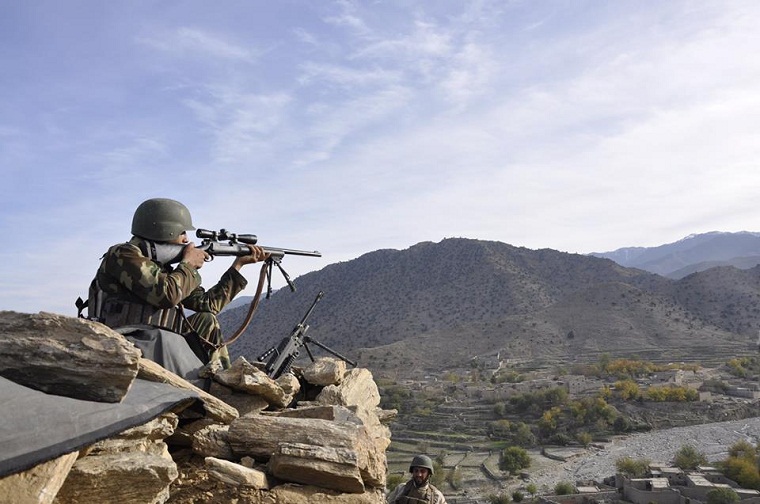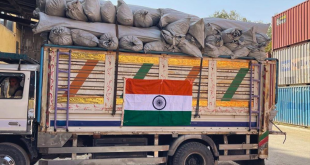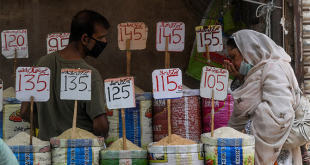The principles of self-determination and territorial integrity are two significant principles applicable to international law and politics. It explains that countries have the right to freely determine their sovereignty and international politics status without external interference and it restricts countries to avoid promoting border changes or secessionist movements in other countries. A number of wars, including World War first and second had fought as a result of applying the territorial integrity principle. One benefit of the territorial integrity, supported by the United Nations charter is that it strives to protect states from acts of aggression by other countries. Unfortunately, since the British reign over Indian sub-continent, violation of Afghanistan’s sovereignty and territorial integrity has been continued with no end in sight. The Great Britain imposed wars on Afghanistan and divided it through the so-called Durand Line—a line that has neither recognized by any Afghan government and nor by the ethnic Afghans and Baloch, living on both sides as a formal border with Pakistan. Last day, the Meshrano Jirga (Senate) took serious notice of Pakistan’s aggression along Durand Line and summoned officials of defense and interior ministries and the National Security Council—a commendable move to brief the house. The interior minister Wais Ahmad Barmak in his briefing to the House said since the beginning of 2017, Pakistan has fired 8,823 missiles into Afghanistan. Similarly, on pretext of preventing terrorists penetration into Afghanistan, Pakistan has been engaged in military installations and fencing the Durand Line—a unilateral move that violates Afghanistan’s territorial integrity and agreement of 1921 that was signed between the British India and Afghanistan, during the late King Amanullah Khan. It’s heartbreaking and not tolerable for all Afghan when to see a large number of civilians, including women and children in Kunar and Nangarhar provinces, losing their precious lives as a result of missile shelling by Pakistan’s military forces. Moreover, thousands of thousands families are being forced to leave their homes and add to the miseries of IDPs. This aggressive and notorious move by Pakistan has sparked anger and anti-Pakistan sentiments among the general Afghan masses. Anti-Pakistan protests have been organized in Kunar, Nangarhar, Kabul, Khost, Balkh, Helmand, Kandahar and other parts of the country where the peaceful protesters termed Pakistan a cancer for the region and civilized world and they urged the government and the US-led NATO forces to retaliate to Pakistan’s aggression in strongest terms. Furthermore, they (protestors) want to trigger Pakistan into court of justice for its wrongdoings. Despite pursuing policy of patience, the Afghan National Defense and Security Forces, on some occasions have strongly retaliated to the Pakistan’s missile shelling and successfully destroyed its several key military posts along the line that even resulted into killing of Pakistan’s military personnel. Surely, one cannot deny that the continued violations of Durand Line by Pakistan and its pro-terror policies led to deeply entrench anti-Pakistan sentiments and thoughts among the Afghan people and these resentments are not restricted to any particular ethnic or political group—it is across the board. Historically, we, the Afghans were always on the same page when it comes to national interests and foreign aggression. Analyzing the ongoing situations in the region and around the globe, time is not running with Pakistan and its pro-terror policies. Now it’s up to Islamabad whether it changes its Afghan course and turns around its project of international terrorism or becomes a birthday cake in the nearer future. Afghans, having no hostility with the general public in Pakistan, but have the right to put all efforts and resources on card to confront Pakistan’s aggression and unilateral move along Durand Line. Fencing Durand Line and firing missiles into Afghanistan are neither a solution to the problems of Pakistan nor eliminating terrorism. Time is ripe for Pakistan to shun terror havens in its soil and stop exporting terrorism and destruction to Afghanistan. The Afghan government and our strategic partners must have to come to the fore and safeguard Afghanistan’s sovereignty and historic territorial integrity. The leadership of the Unity Government, including the country’s diplomatic staff around the globe, especially in Pakistan is responsible at first place to protect the country’s sovereignty through several challenges, but dialogue is the best option. Moreover, the international community—being in strategic alliance with Afghanistan—is also accountable in the court of Afghans for its silence over aggression of Pakistan almost all the time.

 Afghanistan Times Latest News and Analysis from Afghanistan and the Region
Afghanistan Times Latest News and Analysis from Afghanistan and the Region


